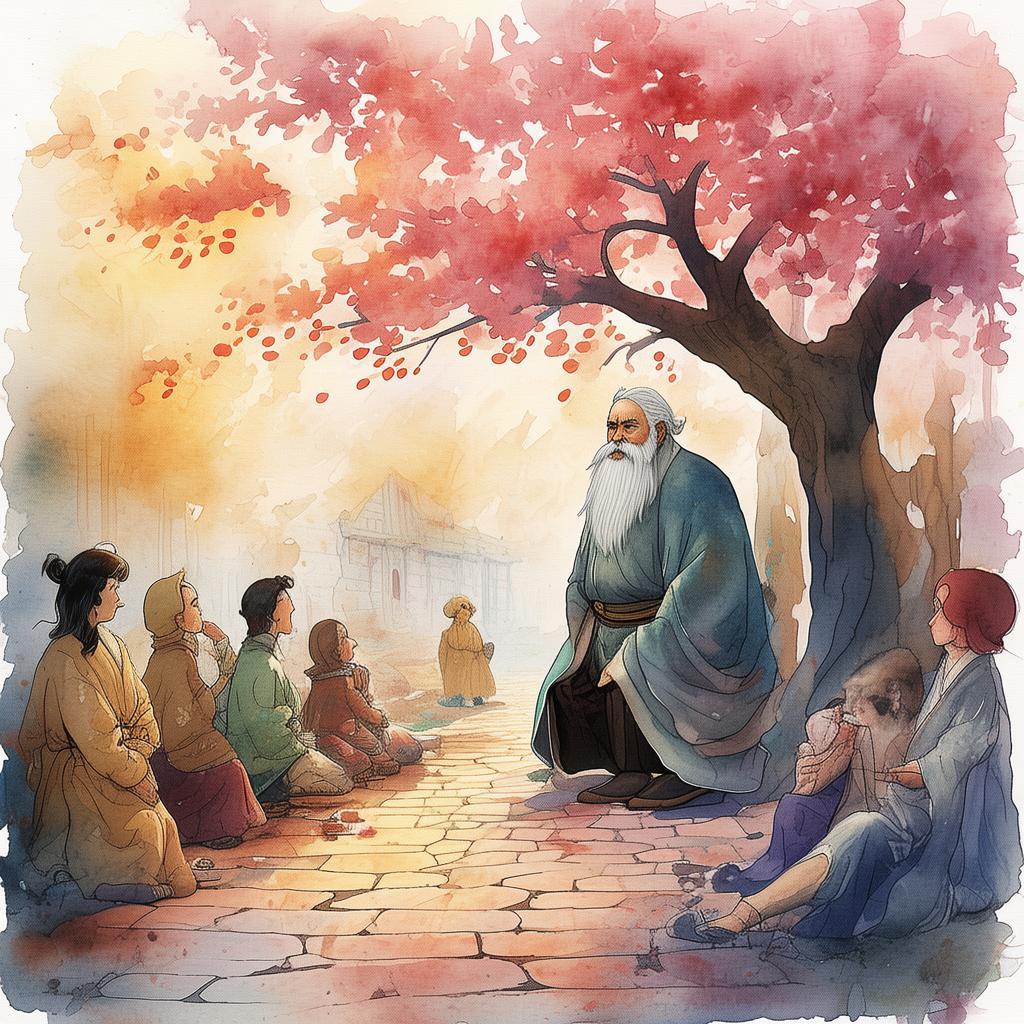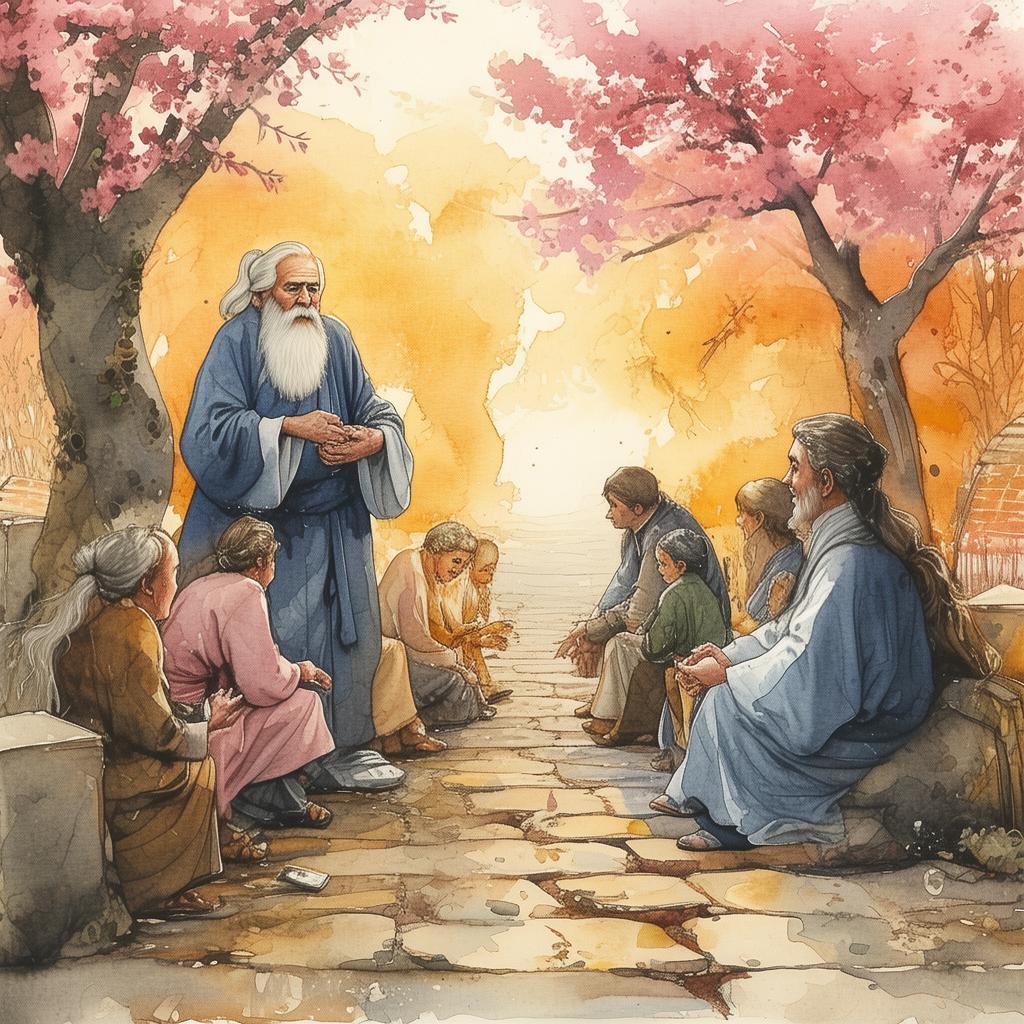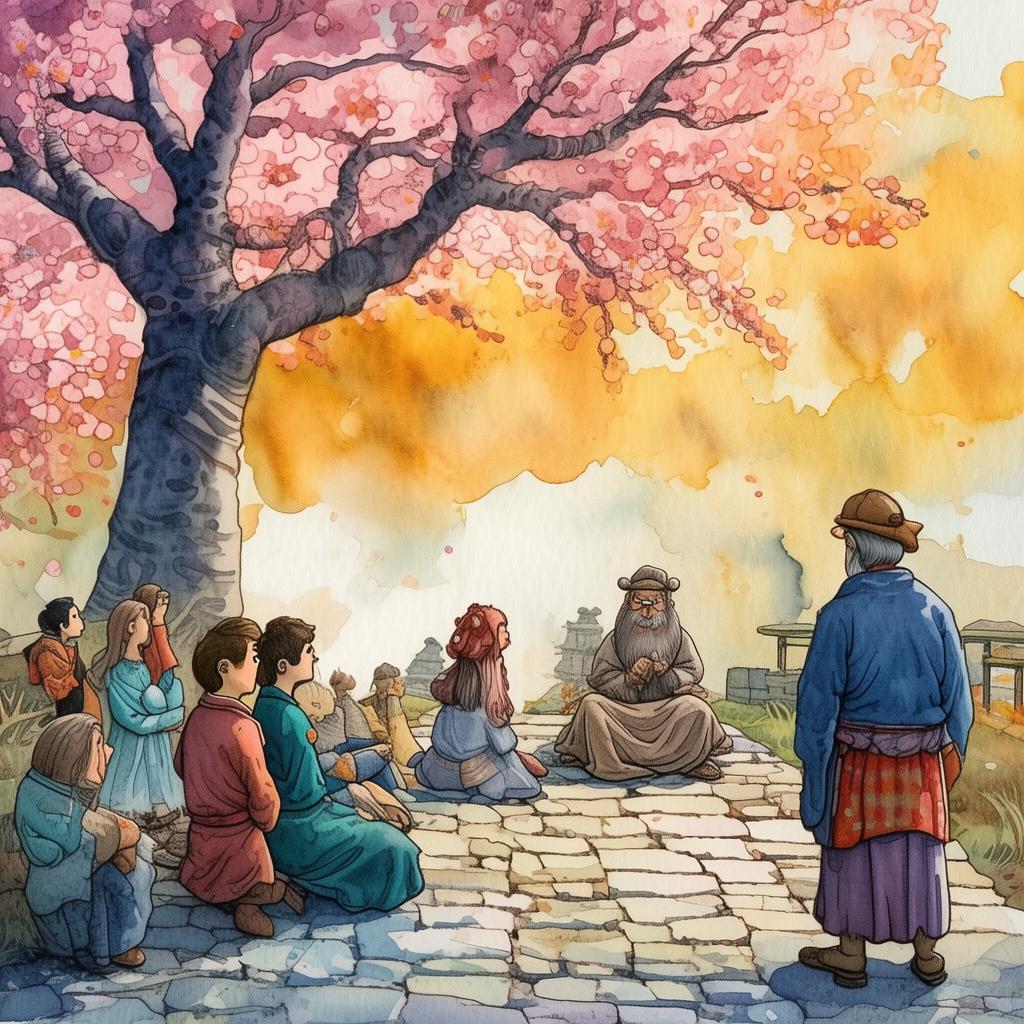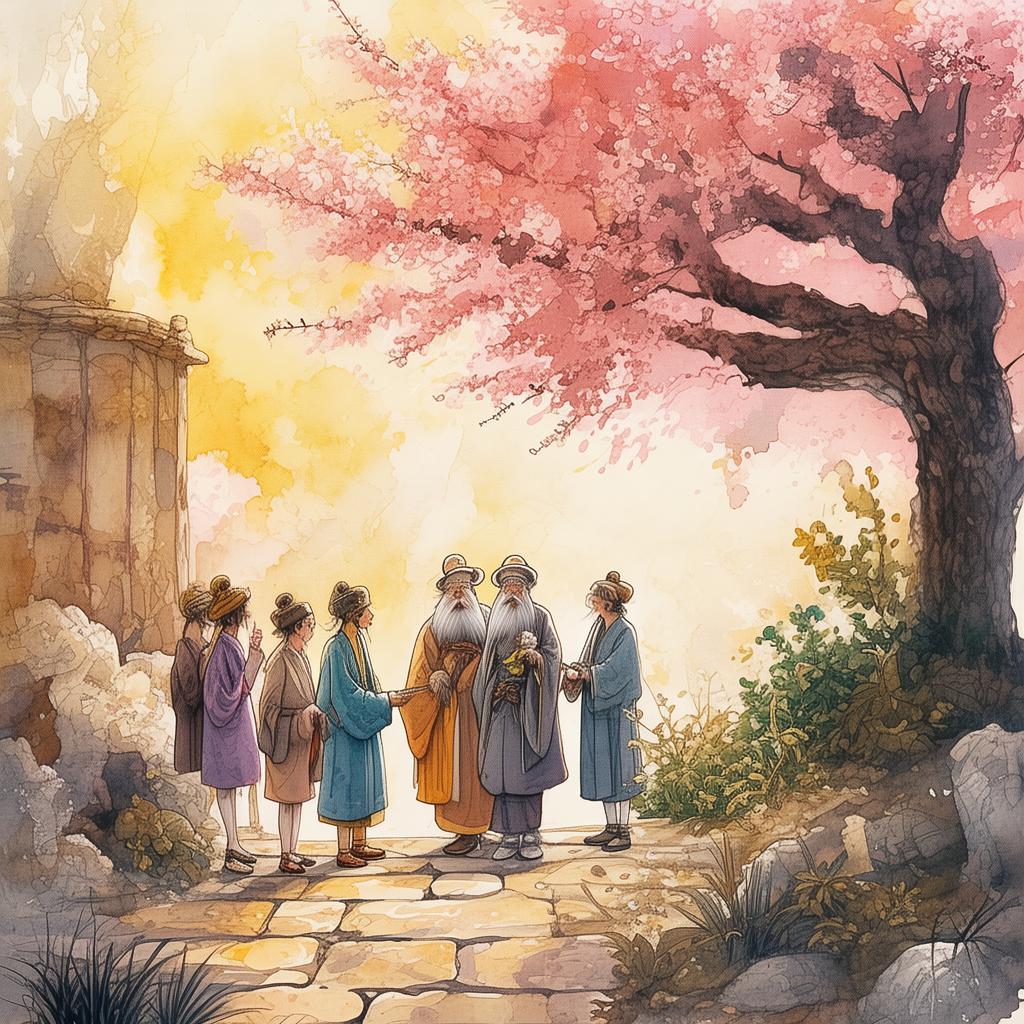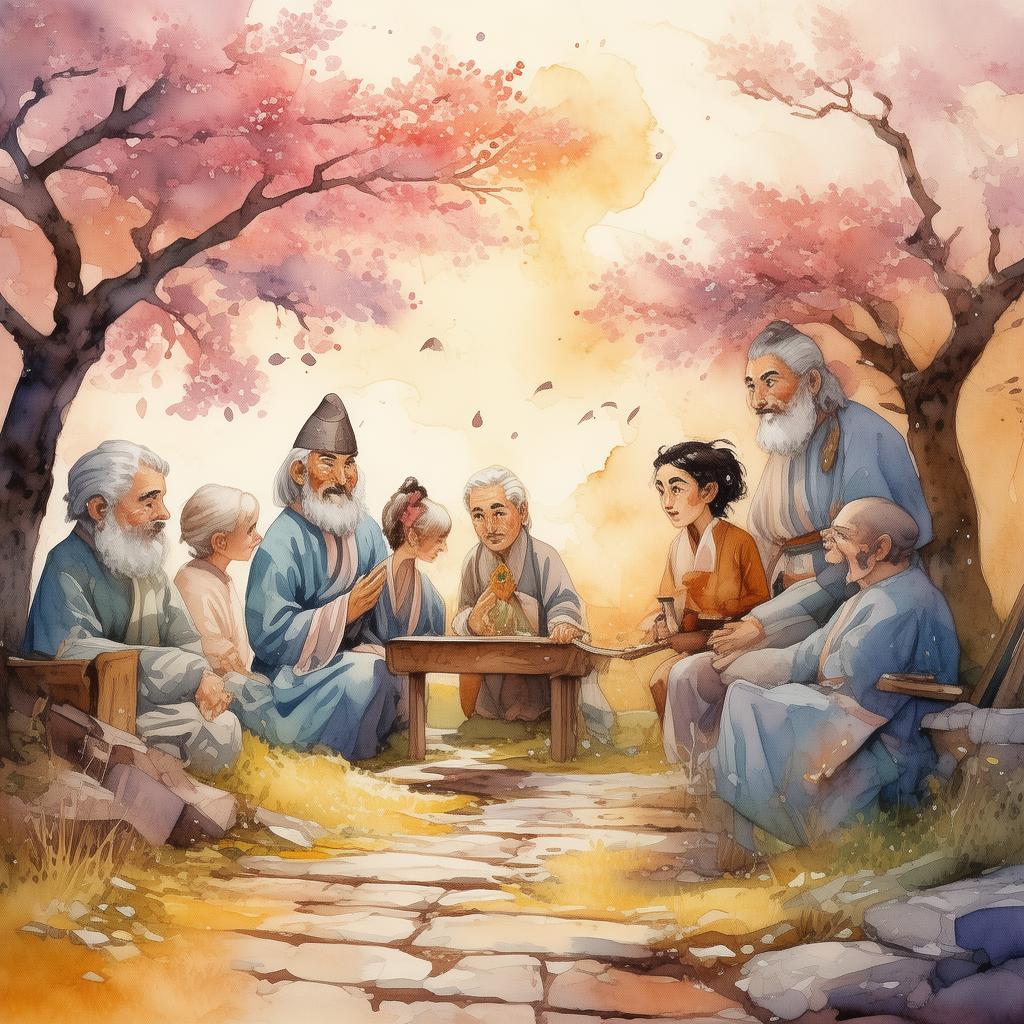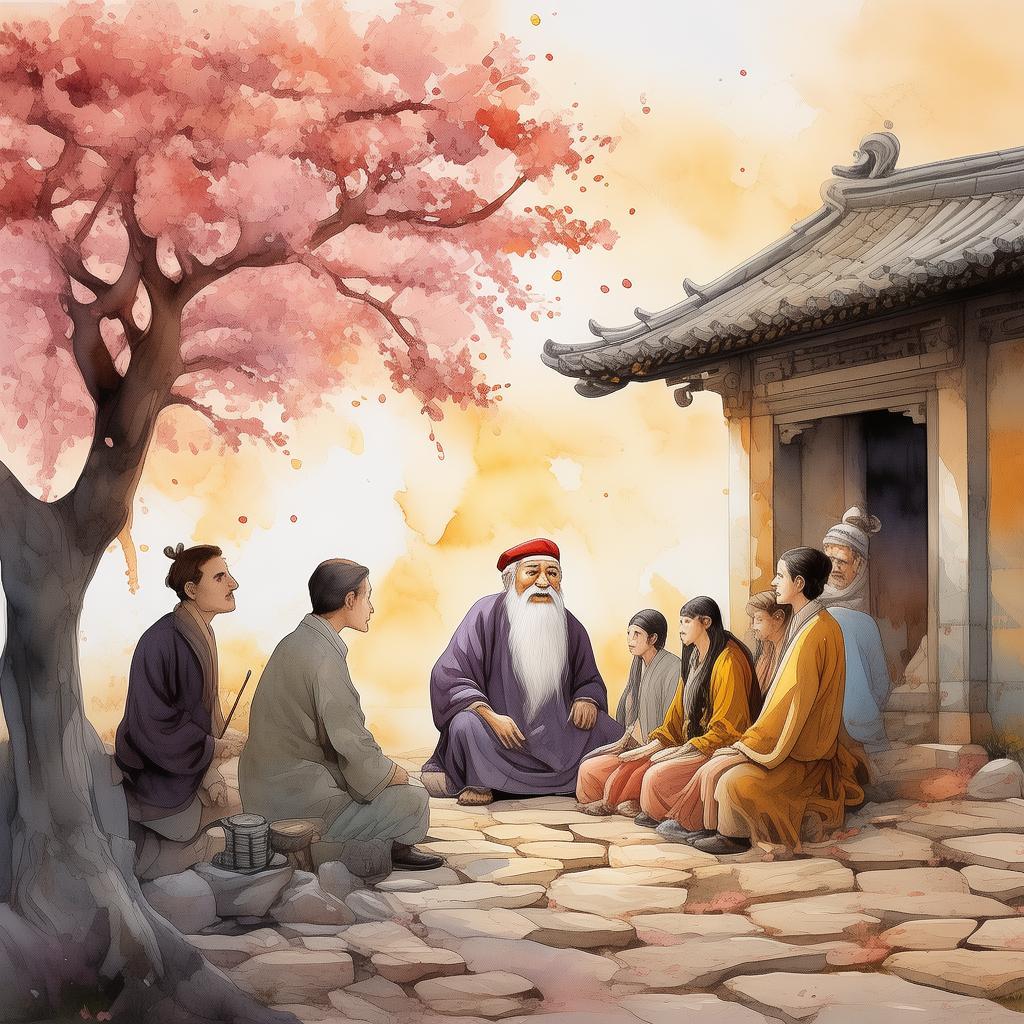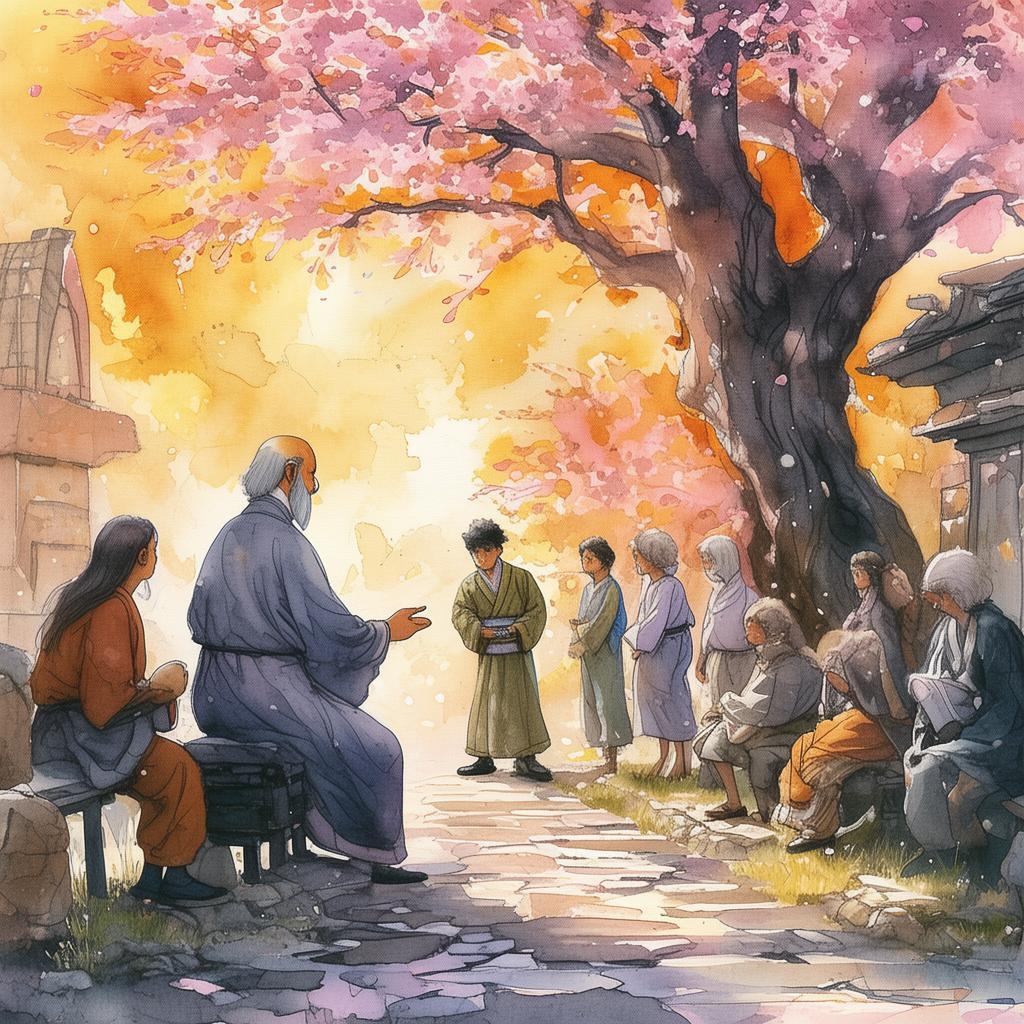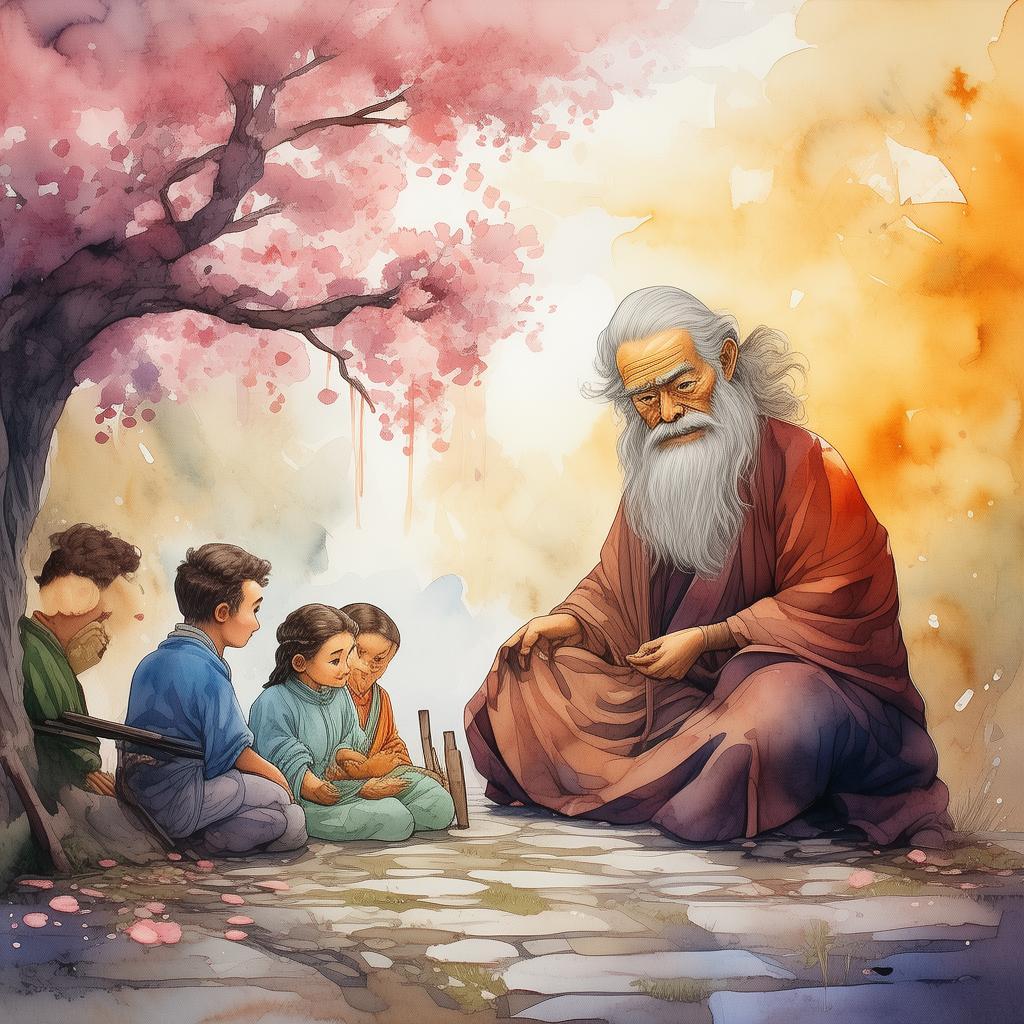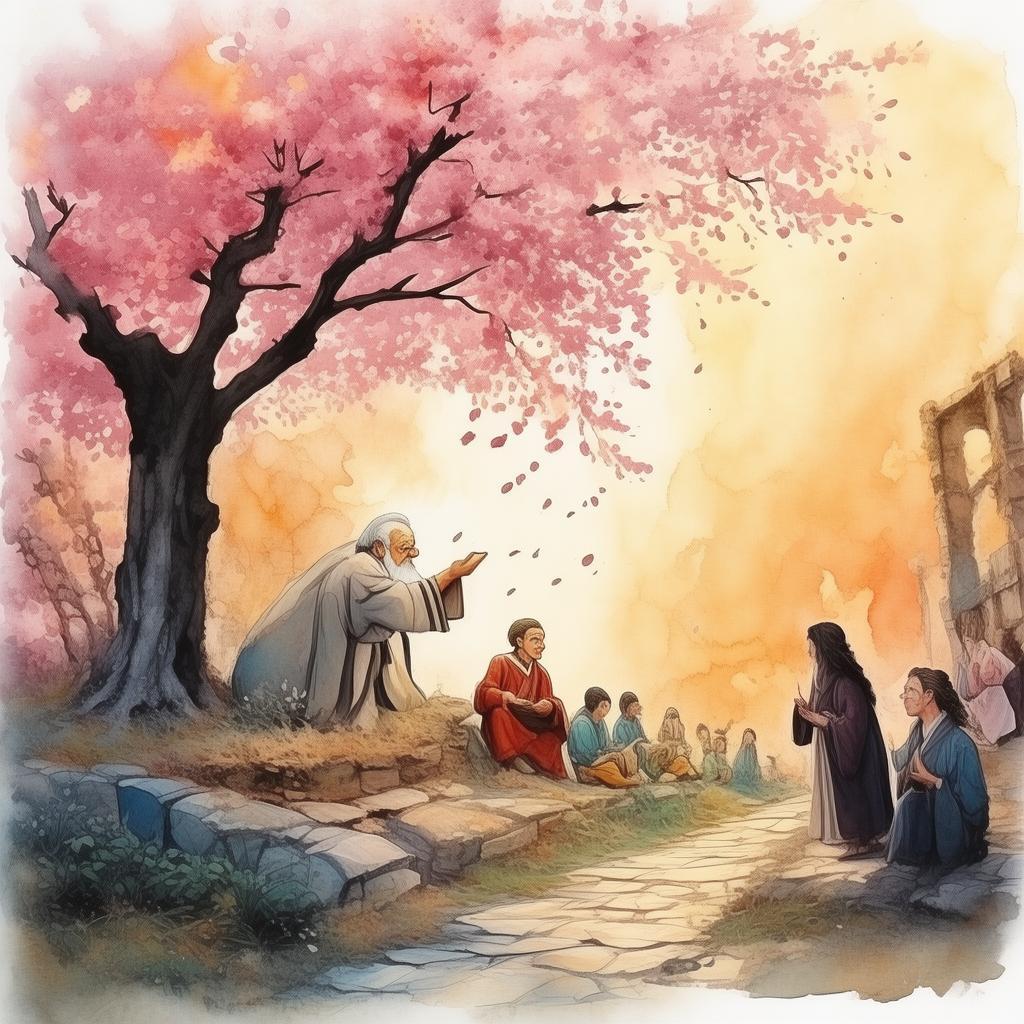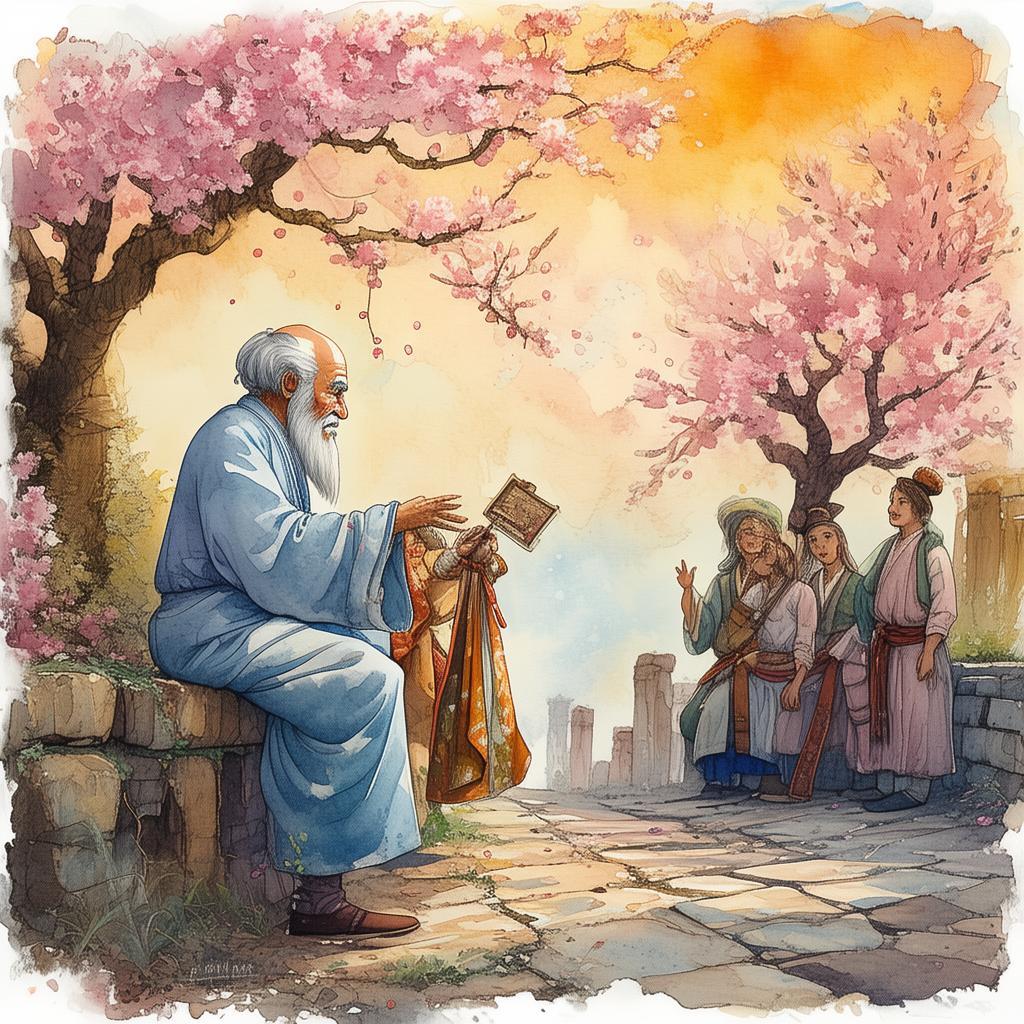The Arrow of the Mind: The Enigma of the Vanishing Scholar
In the ancient city of Ling, there lived a scholar named Wei, whose wisdom was unparalleled. He was known far and wide for his deep understanding of philosophy, literature, and the arts. His home was a sanctuary for scholars and thinkers, where they would gather to discuss the deepest mysteries of the mind and the universe.
One crisp autumn morning, Wei was found missing from his study. His books lay scattered, and his inkwell was still half full. It seemed as though he had vanished without a trace. The city was abuzz with rumors, each more fantastical than the last. Some believed he had ascended to the heavens, while others thought he had been taken by a mystical force.
The city's most prominent philosopher, Ming, was determined to uncover the truth. Ming had been a close friend of Wei and had often discussed the nature of reality and the mind with him. He believed that Wei's disappearance was not a mere vanishing act but a philosophical mystery that needed to be solved.
Ming's investigation led him to a small, secluded temple on the outskirts of the city. The temple was dedicated to the ancient deity of wisdom, and it was said that the deity had once given a sacred arrow to a chosen scholar, granting them the power to understand the deepest truths of the mind.
As Ming entered the temple, he was greeted by an old monk who seemed to know of his mission. "The arrow of the mind," the monk said, "is not a physical object but a state of being. It is the arrow that points beyond the physical world, to the realm of the mind and the soul."
Ming was puzzled. "But where is Wei? How did he disappear?"
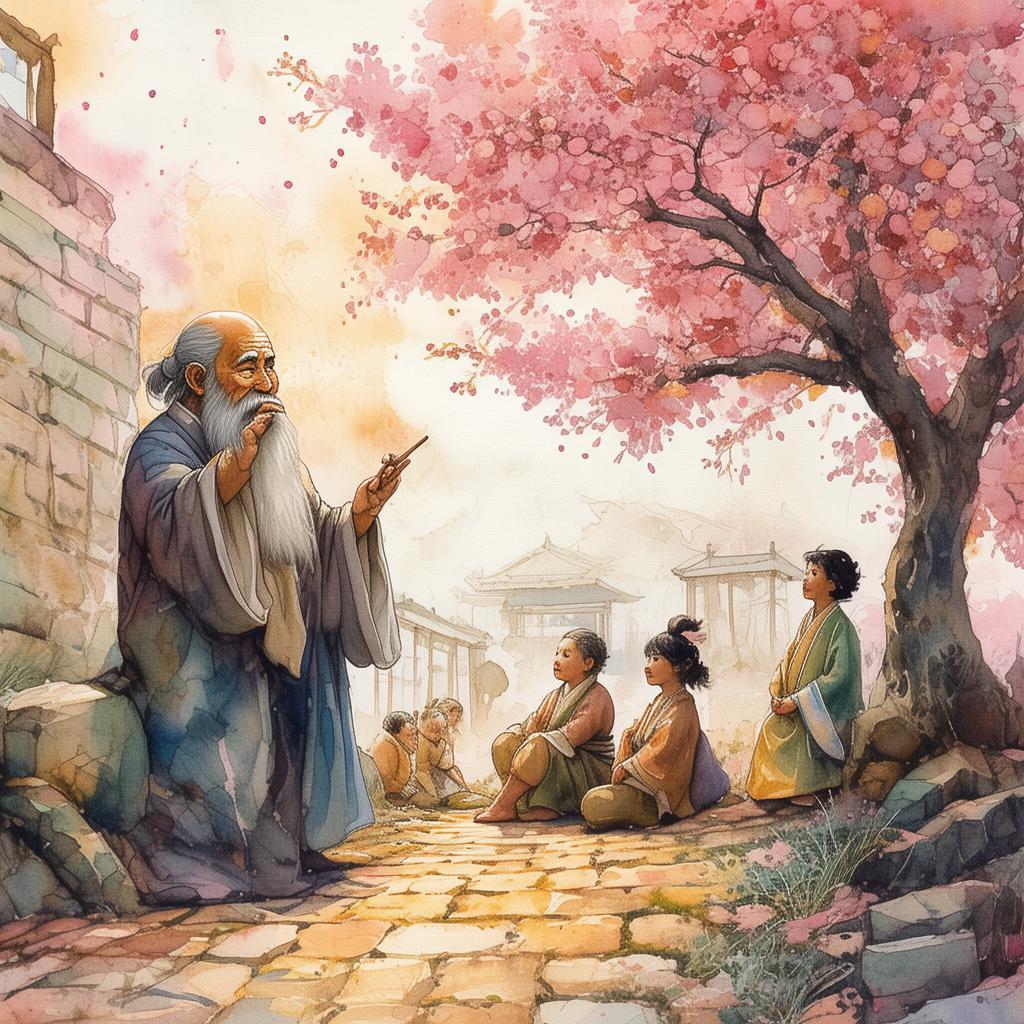
The monk smiled cryptically. "Wei was not taken by force; he was taken by his own mind. The arrow of the mind is a symbol of enlightenment, and Wei has found it."
Ming, not fully understanding, asked, "But how can we find him?"
The monk handed Ming a small, intricately carved arrow. "This is a representation of the arrow. It will guide you to Wei's mind."
Ming took the arrow and began to meditate. As he focused his mind, he felt a strange sensation, as if the arrow was pulling him into a different realm. He saw Wei, not in a physical form, but as a series of thoughts and ideas swirling around him.
Wei's mind was a vast library, filled with books and scrolls that contained the wisdom of the ages. Ming wandered through this library, trying to find the key to Wei's disappearance. He noticed a peculiar book, bound in leather and covered in dust. The title read, "The Enigma of the Mind."
Ming opened the book and found it to be a collection of Wei's most profound thoughts and theories. He read about the nature of consciousness, the self, and the universe. As he delved deeper into the book, he realized that Wei had been searching for the answer to a single question: What is the essence of the mind?
In the final pages of the book, Ming found a note from Wei. "I have found the arrow of the mind, but it is not a destination; it is a journey. The true enlightenment lies in the continuous pursuit of understanding."
Ming, now understanding the nature of Wei's disappearance, realized that he had been on a journey of his own. He had been searching for the answer to the same question that had driven Wei for so long.
With a newfound sense of clarity, Ming returned to the temple. He thanked the monk and left the arrow behind. He knew that the arrow was a symbol of the journey, not the destination.
Back in the city, Ming shared his experiences with the scholars. They discussed the nature of the mind and the universe, and they realized that the true mystery was not Wei's disappearance, but the continuous quest for understanding.
Years later, a new generation of scholars gathered in Wei's old study. They discussed the arrow of the mind, the nature of consciousness, and the endless journey of the mind. They realized that Wei's disappearance was not a tragedy, but a gift—a gift that had sparked a lifelong journey of discovery and enlightenment.
And so, the story of Wei and the arrow of the mind became a legend, a tale of the eternal quest for understanding and the power of the mind to transcend the physical world.
✨ Original Statement ✨
All articles published on this website (including but not limited to text, images, videos, and other content) are original or authorized for reposting and are protected by relevant laws. Without the explicit written permission of this website, no individual or organization may copy, modify, repost, or use the content for commercial purposes.
If you need to quote or cooperate, please contact this site for authorization. We reserve the right to pursue legal responsibility for any unauthorized use.
Hereby declared.
